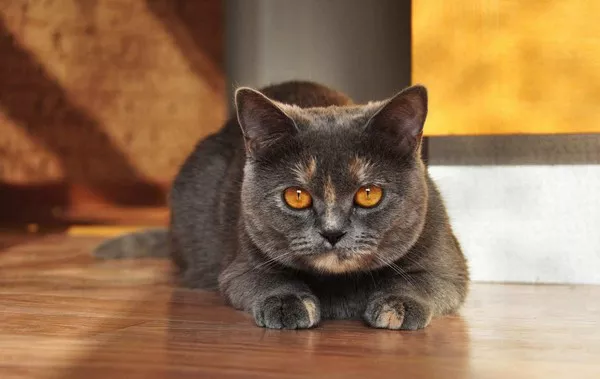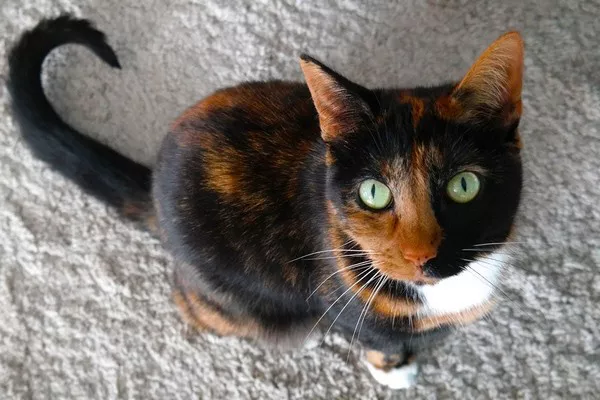British Shorthair cats are beloved for their round faces, dense coats, and sturdy build. As a breed known for their robustness and excellent health, they come in various sizes and weights. In this comprehensive guide, we’ll explore the typical weight ranges for British Shorthair cats, factors that can influence their weight, and how to ensure they maintain a healthy size throughout their lives.
Understanding the British Shorthair Breed
British Shorthair cats are a breed known for their charming appearance and amiable personality. Originating from the United Kingdom, they have become popular pets worldwide. The British Shorthair breed has several distinctive features that contribute to their weight range:
Sturdy Build: British Shorthairs have a solid and muscular body with a broad chest and thick bones, contributing to their weight.
Dense Coat: Their dense and plush coat, while not adding much to their actual weight, gives them a stocky appearance.
Round Face: British Shorthairs are famous for their round faces, which further adds to their overall robust look.
Typical Weight Range for British Shorthair Cats
The weight of a British Shorthair cat can vary depending on factors such as age, gender, genetics, and individual metabolism. However, here is a general guideline for the typical weight range you can expect for British Shorthair cats:
Kittens: British Shorthair kittens usually weigh around 3 to 4 ounces (85 to 115 grams) at birth. Their weight will steadily increase during the first few months of life. By the time they are three to four months old, they may weigh anywhere from 3 to 5 pounds (1.4 to 2.3 kilograms).
Adult Females: Adult female British Shorthairs typically weigh between 7 to 12 pounds (3.2 to 5.4 kilograms). However, some exceptionally large females may weigh slightly more.
Adult Males: Adult male British Shorthairs tend to be larger and can weigh anywhere from 10 to 18 pounds (4.5 to 8.2 kilograms). Once again, some particularly hefty males may exceed these ranges.
It’s important to note that these are general guidelines, and individual cats may fall outside these weight ranges while still being perfectly healthy. Some British Shorthair cats may be smaller or larger than the averages, and this can be influenced by genetics and the specific bloodline of the cat.
Factors Influencing British Shorthair Cat Weight
Several factors can influence the weight of a British Shorthair cat:
Genetics: The genetics of the cat play a significant role in determining their size and weight. Cats from larger parents are likely to be bigger themselves.
Gender: Male British Shorthairs tend to be larger and heavier than females.
Age: Kittens naturally weigh less than adult cats. As they grow, their weight increases steadily until they reach their full adult size.
Diet: The type and amount of food a cat consumes can affect their weight. Overfeeding can lead to obesity, while a balanced diet ensures healthy growth.
Activity Level: More active cats may burn more calories and maintain a leaner physique compared to sedentary ones.
Maintaining a Healthy Weight
Maintaining a healthy weight is crucial for the overall well-being of your British Shorthair cat. Here are some tips to help ensure they stay within a healthy weight range:
Balanced Diet: Provide your cat with a high-quality cat food that meets their specific nutritional needs. Avoid overfeeding, as excess calories can lead to obesity.
Portion Control: Follow the feeding guidelines provided on the cat food packaging, and measure your cat’s portions to prevent overeating.
Regular Exercise: Encourage play and physical activity to keep your British Shorthair active and prevent weight gain. Interactive toys and play sessions can help stimulate their minds and bodies.
Scheduled Meals: Establish a consistent feeding schedule to regulate your cat’s food intake. Avoid leaving food out for free-feeding, as it can lead to overconsumption.
Regular Veterinary Check-Ups: Schedule regular check-ups with your veterinarian to monitor your cat’s overall health, including their weight. Your vet can provide guidance on maintaining a healthy weight.
Treats in Moderation: If you offer treats to your British Shorthair, do so in moderation. Treats should not make up a significant portion of their daily caloric intake.
Hydration: Ensure your cat has access to clean, fresh water at all times to support their overall health.
Conclusion
British Shorthair cats are known for their solid and sturdy build, and their weight can vary depending on several factors, including genetics, gender, and diet. While there are general weight ranges for this breed, individual cats may fall outside these guidelines and still be healthy. To maintain your British Shorthair’s health and well-being, focus on providing a balanced diet, portion control, regular exercise, and veterinary check-ups. With proper care, your British Shorthair can enjoy a happy and healthy life within their unique weight range.

























